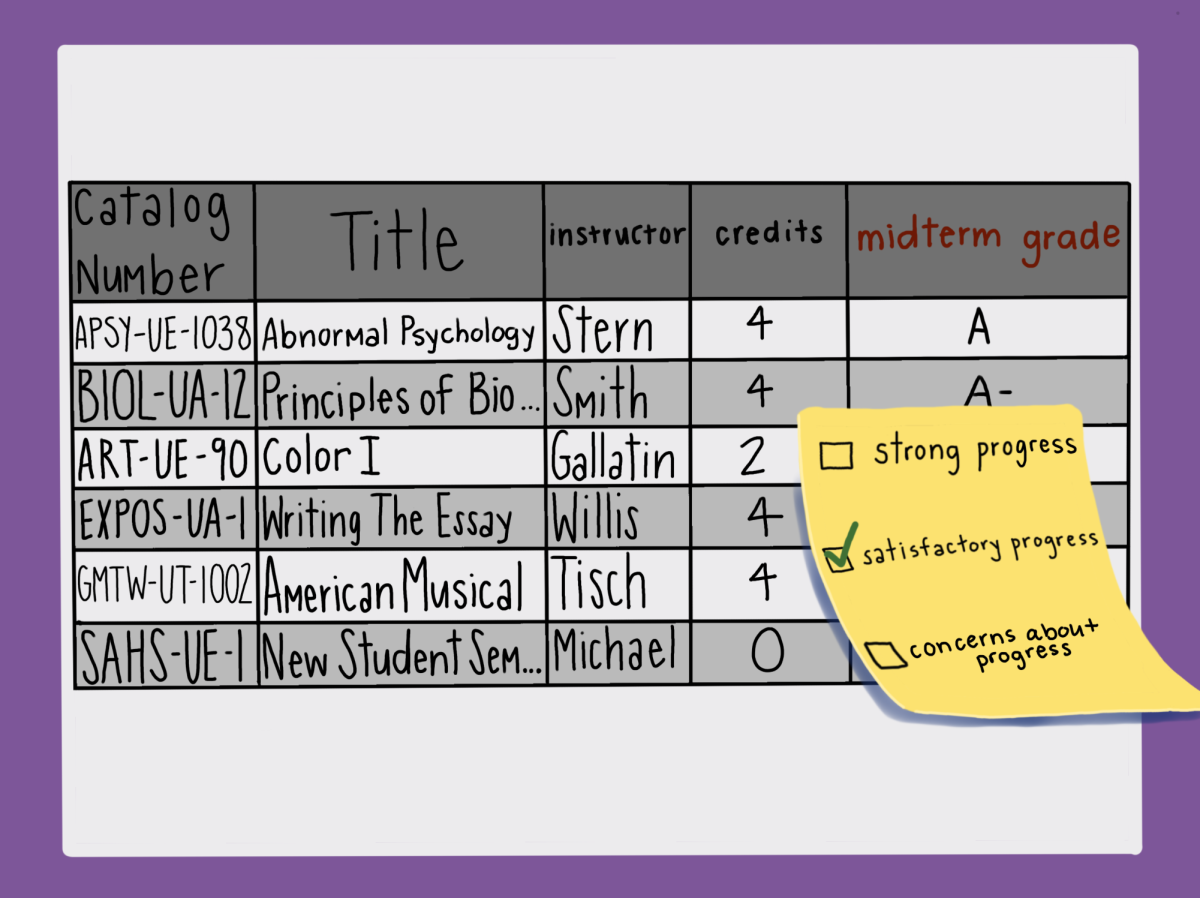Rather than waiting weeks, or worse longer, for a midterm grade that might never come, students will now receive midterm progress reports for each of their courses. The new system is less specific than letter grades, including only three progress indicators: “Strong Progress,” “Satisfactory Progress” and “Concerns about Progress.” Despite the loss in specificity, the simpler system might solve the problem of many professors not submitting midterm grades at all — the lower effort required for grading will likely lead to more students receiving feedback on their coursework.
The midterm grades that appear in Albert can also be misleading — if most of the graded coursework in a class is assigned in the second half of the semester, letter grades representing a student’s performance in only the first half can be far from what their final grade will be. Students will also still be able to see letter grades they receive for exams and assignments in Brightspace, so the move away from the letter grade system for overall midterm grades is not much of a loss anyways.
Instead of giving students even more letter grades than they already receive in their classes, or worse not providing any feedback at all, a progress report system lets students know how they’re doing in a more constructive way. By letting students know how they are progressing more consistently, including when it comes to factors like attendance that are sometimes only reflected in final grades, this system will give students the knowledge they need to improve in their classes.
By acting as an early intervention tool, midterm progress reports will enable academic advisers and students to recognize and resolve possible problems before the end of the semester. For example, if a student receives a “Concerns about Progress” indication, they might be motivated to speak to their professor and advisers to address the problem. Under the letter grade system, that same student might never have known they were struggling at all, and failed to make the necessary adjustments to succeed in the class.
Another benefit of the new system is that it suits both professors that might struggle to give feedback during midterm season and those with more time on their hands. Professors who want to let students know how they’re doing but don’t have the time to pick through each student’s every assignment and attendance record can give them a general idea of their progress. At the same time, professors who might have a smaller and therefore more manageable class of students can provide detailed feedback in addition to the progress indicators through open-ended responses and an additional comments section.
While some students might be skeptical about leaving letter-based midterm grades behind due to fears of not knowing where they stand, a progress-based system will actually provide them better feedback, and make it more likely that they receive feedback for every class. With this change in the midterm grading system, NYU is prioritizing students’ learning over keeping to traditional grading — an approach that benefits both students and professors.
WSN’s Opinion section strives to publish ideas worth discussing. The views presented in the Opinion section are solely the views of the writer.
Contact Molly Koch at [email protected].

























































































































































